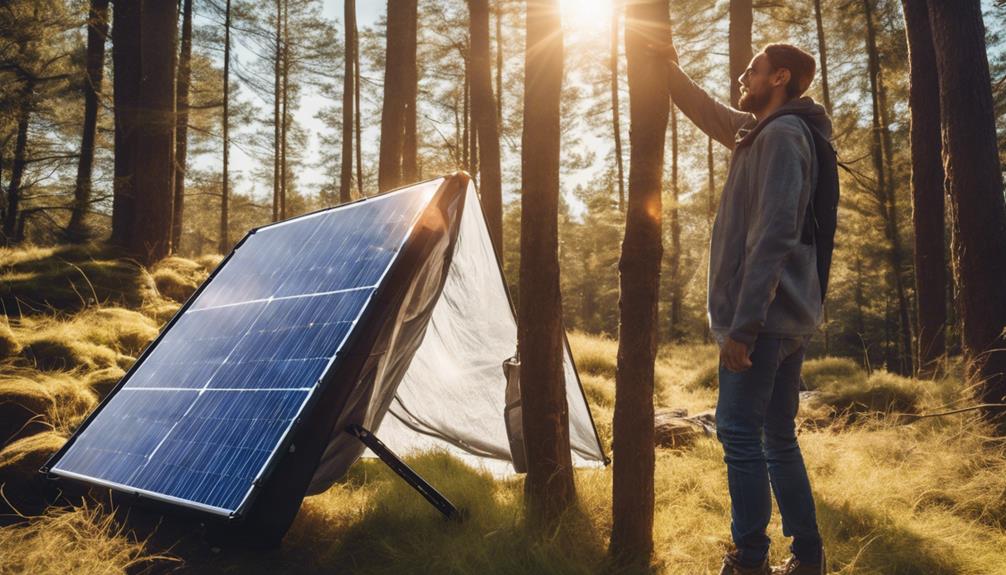
In recent years, the popularity of solar panels for RVs has soared, as more travelers seek sustainable and efficient energy solutions for their mobile lifestyles. Whether you’re a weekend warrior or a full-time RV enthusiast, understanding the benefits, installation, and maintenance of solar panels for RV is crucial. In this comprehensive guide, we’ll explore everything you need to know about solar panels for RVs, helping you make informed choices for your next adventure.
What Are Solar Panels for RV and How Do They Work?
Solar panels for RV are photovoltaic systems designed to convert sunlight into electricity, allowing you to power your appliances, lights, and devices while on the road. These systems typically consist of solar panels, a charge controller, batteries, and an inverter. When sunlight hits the solar panels, it generates direct current (DC) electricity, which is then regulated by the charge controller to prevent overcharging. Excess energy is stored in batteries for use when sunlight is insufficient. The inverter converts DC electricity into alternating current (AC) electricity, which is what most household appliances require.
Benefits of Using Solar Panels for RV
The advantages of installing solar panels for RV are numerous. Firstly, they provide a sustainable and eco-friendly energy source, helping to reduce your carbon footprint. Secondly, solar panels can save you money in the long run by decreasing your reliance on generator fuel or campground electricity fees. Additionally, having solar panels increases your independence, allowing you to camp off-grid without sacrificing comfort. With solar energy, you can power essential devices like refrigerators, lights, and even air conditioning systems, giving you the freedom to explore remote locations without worrying about power availability.
Choosing the Right Solar Panels for Your RV
Selecting the appropriate solar panels for RV involves several considerations. First, assess your energy needs by calculating the total wattage of the devices you wish to power. This will help you determine the size and number of solar panels required for your setup. Common options include monocrystalline, polycrystalline, and thin-film solar panels, each with unique characteristics. Monocrystalline panels are known for their efficiency and space-saving design, making them ideal for smaller RVs. Polycrystalline panels are typically more affordable but may require more space. Thin-film panels are lightweight and flexible, but they usually have lower efficiency rates.
Installation Process of Solar Panels for RV
Installing solar panels for RV can be a DIY project or completed by professionals, depending on your comfort level with electrical systems. If you choose to do it yourself, start by selecting a suitable location on your RV roof that gets maximum sunlight exposure. Secure the solar panels using brackets or adhesive, ensuring they are firmly attached to withstand wind and movement. Next, connect the panels to the charge controller and batteries, following the manufacturer’s instructions carefully. Finally, install the inverter to convert the stored DC power into usable AC power. Always prioritize safety and consult a professional if you’re unsure about any step in the process.
Maintenance Tips for Your RV Solar Panels
Proper maintenance of your solar panels for RV is essential to ensure their longevity and efficiency. Start by regularly cleaning the panels to remove dirt, dust, and debris that can obstruct sunlight absorption. Use a soft cloth or sponge with mild soap and water for cleaning, avoiding abrasive materials that could scratch the surface. Additionally, check the wiring and connections periodically for wear or damage. Keeping your batteries in good condition is also crucial; monitor their water levels (for lead-acid batteries) and ensure they are properly charged to prolong their lifespan.
Cost Considerations for Solar Panels for RV
Investing in solar panels for RV can vary significantly in cost based on the size of the system, the type of panels selected, and installation expenses. On average, a complete solar setup for RV can range from $1,000 to $6,000, including panels, batteries, charge controllers, and inverters. While the initial investment may seem high, consider the long-term savings on fuel and campground hookups. Many RVers find that their solar systems pay for themselves within a few years, making it a financially smart choice for avid travelers.
Exploring Off-Grid Camping with Solar Panels for RV
One of the most exciting aspects of solar panels for RV is the ability to camp off-grid, away from crowded campgrounds and noisy RV parks. With a reliable solar setup, you can explore remote locations, national parks, and scenic wilderness areas without worrying about power sources. Off-grid camping not only enhances your travel experience but also fosters a deeper connection with nature. Just be sure to plan ahead, considering factors such as your energy consumption, battery capacity, and available sunlight at your chosen destination.
Future Trends in Solar Technology for RV
As technology continues to advance, the future of solar panels for RV looks promising. Innovations in solar efficiency, battery technology, and flexible solar panels are making it easier for RV owners to find the perfect energy solutions for their adventures. Emerging technologies, such as solar roof tiles and portable solar generators, offer even more options for RV enthusiasts looking to harness the sun’s power. Furthermore, as the demand for renewable energy grows, we can expect to see more affordable and efficient solar panels entering the market, making them accessible to a broader audience.
Conclusion
In conclusion, solar panels for RV are a game-changer for anyone looking to enhance their travel experience while embracing sustainable energy solutions. By understanding how solar systems work, selecting the right components, and ensuring proper maintenance, you can enjoy the benefits of off-grid adventures without compromising on comfort. As you embark on your next journey, consider investing in solar panels for your RV and unlock the freedom to explore the great outdoors with renewable energy at your fingertips.





